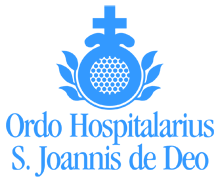
Ordo Hospitalarius S. Ioannis de Deo
Via della Nocetta, 263
00164 Roma (RM)
Tel.+39 06 6604981
Tel.+39 06 6637102
info@ohsjd.org
For the HOSPITALITY EUROPE office in Brussels, the return
to work was marked by two important success stories, with the announcement by
the executive agencies of the European Commission that two major EU projects,
submitted by Hospitality Europe in March, had been approved.
Firstly, there is the PUENTE project, which was
included among 19 financed out of more than 215 applications submitted, for
which funding of 250,000 euros had been granted.
The PUENTE project (Spanish for ‘bridge’) is a
partnership between the Order's and Sisters Hospitallers’ centres which are
assisting and helping Ukrainian refugees in Europe in various ways, and aims to
be a ‘Hospitality Bridge’ linking Spain to Ukraine, passing through various
European countries.
In this new PUENTE project, partners come from 6
different EU countries: Spain (Juan Ciudad Foundation, SJD Ciempozuelos centre
and Benito Menni HSC hospital centre in Valladolid), Poland (Bonifraterska
Fundacja Dobroczynna), Portugal (SJD Institute), Italy (FBF Rome Province),
Austria (St John of God Hospital in Linz) and Belgium (Hospitality Europe).
The project will start in the autumn of this year and
will last for 2 years.
The second European project concerns the fight against
addiction and consists of a partnership to organise meetings and cooperation
between a number of centres offering pathways to detoxification from drug and
alcohol addiction, but also from the new digital addictions, gambling, smoking
and other unhealthy lifestyles.
Coordinated by the Sisters Hospitallers’ mental health
centre at Sant Boi de Llobregat (CASM Benito Menni), RESTART will also include
the participation of the Walkabout recovery community (Kainbach - Austria), the
St. John of God health centre (Funchal), the Sisters Hospitallers’ Villa San
Giuseppe (Ascoli Piceno - Italy) and the Centro Sanatorio Marítimo (Gijón -
Spain).
The project will start in 2025 and will last 18
months, during which three transnational meetings will also be organised in
Spain, Austria and on the island of Madeira (Portugal).
Very shortly, these last two projects will be joined
by the TECH-HEALTH project on digital health and innovative public health
technologies.